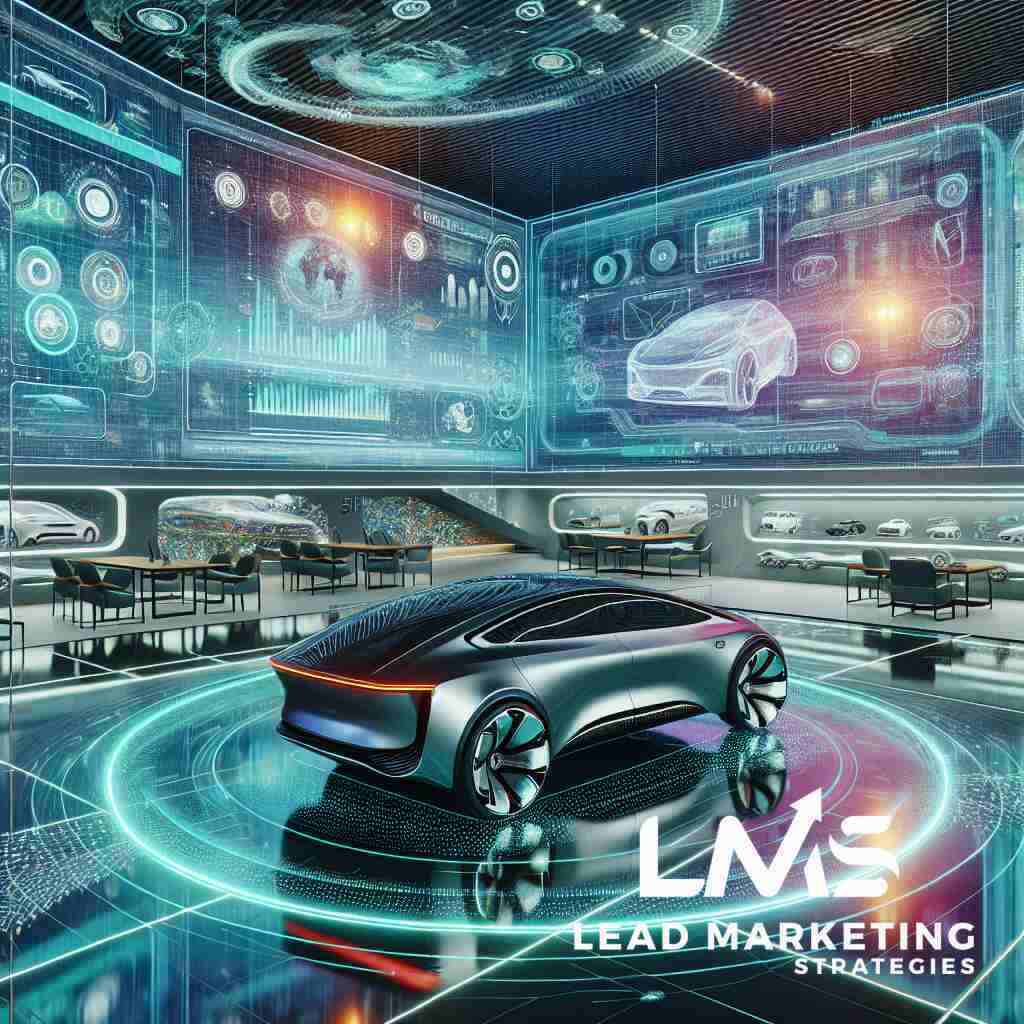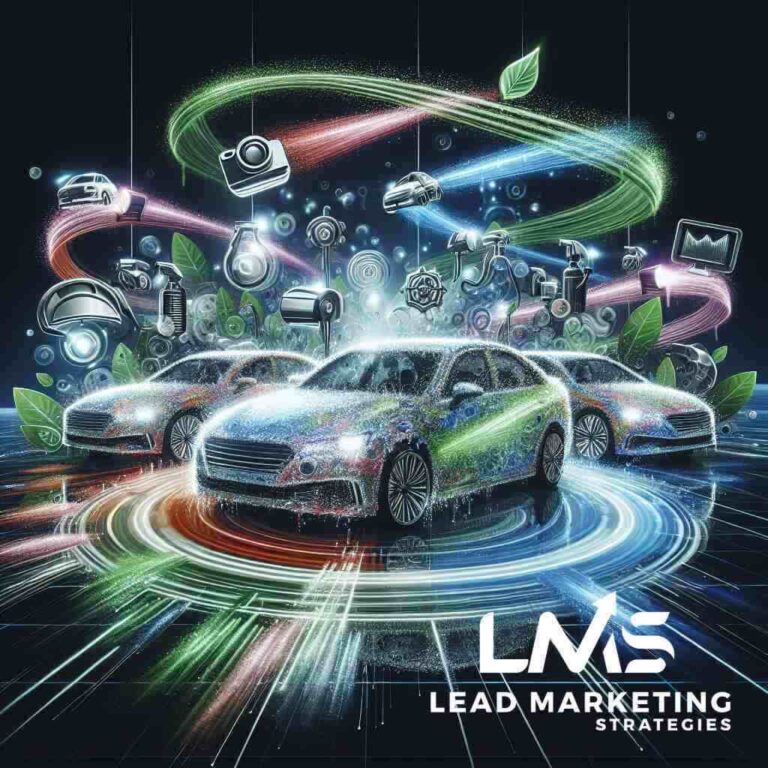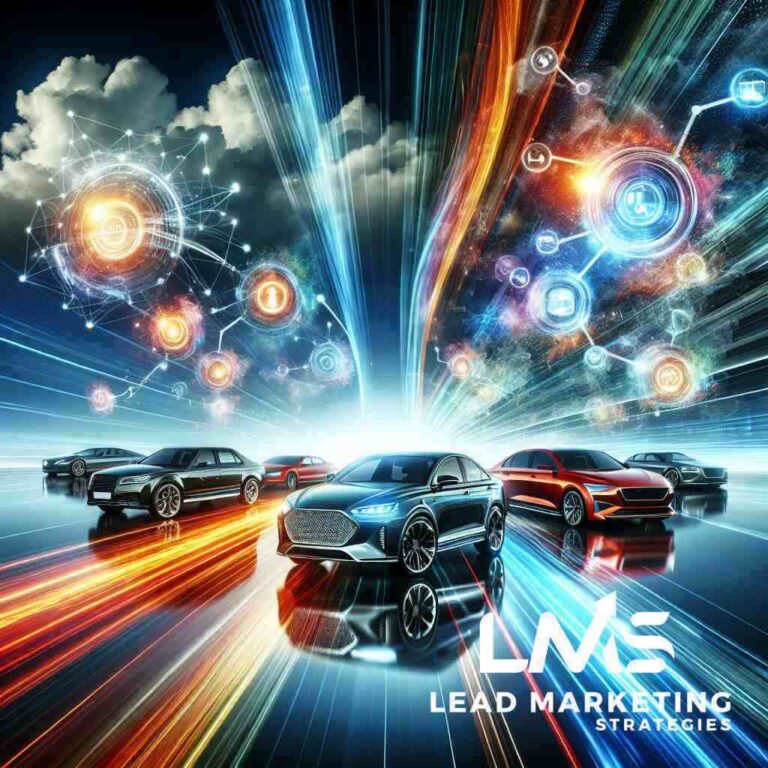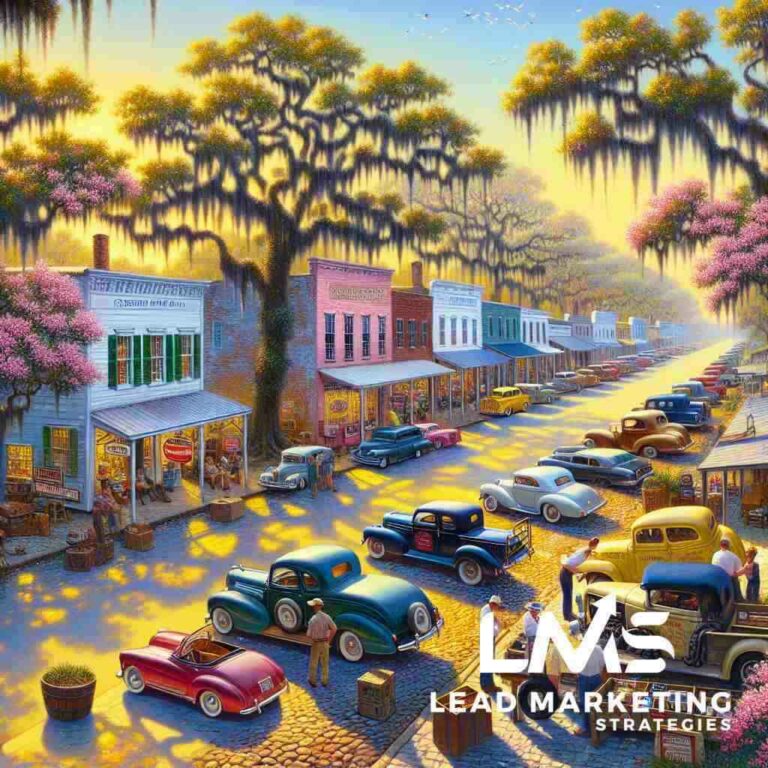Innovative Automotive Marketing Campaigns for 2025
Redefining Auto Marketing with Predictive Analytics
In 2025, the landscape of automotive marketing is set to transform through the implementation of predictive analytics. By analyzing large datasets, automotive businesses can forecast customer behavior and market trends, allowing for more informed decisions. This approach enables automotive companies to anticipate consumer demands and tailor their marketing campaigns accordingly. Predictive analytics not only refines targeting but also optimizes resource allocation, enhancing the efficiency of advertising spend. As a cornerstone of future automotive marketing, it elevates the potential of businesses to drive engagement and conversions effectively.
Exploring predictive analytics for automotive sales positions companies to stay ahead in the competitive market. By leveraging data-driven insights, automotive marketers can craft personalized experiences that resonate more strongly with their target audiences, ultimately boosting brand loyalty and sales.
Integrating AI and Machine Learning in Automotive Strategies
Artificial Intelligence (AI) and Machine Learning (ML) are not just buzzwords; they’re revolutionizing the way we approach automotive marketing. These technologies can process vast amounts of data faster and more accurately than any human, offering profound insights into customer behavior. By integrating AI applications in car marketing, businesses can automate personalized customer interactions, improving the consumer experience.
AI-driven chatbots, enhanced user interfaces, and personalized advertising campaigns are just the start. As AI continuously learns and refines its algorithms, marketing strategies become more dynamic and effective. Automotive companies embracing these technologies can expect heightened efficiency in their marketing efforts, leading to increased customer satisfaction and loyalty. However, the true potential lies in AI’s ability to forecast sales patterns and customer preferences, guiding marketing campaigns that align with future market needs.
Crafting Immersive Experiences through Virtual Showrooms
The concept of virtual showrooms for cars is gaining traction as an innovative marketing strategy. Offering an immersive experience to customers, these digital spaces allow potential buyers to explore vehicles in a highly interactive manner. This approach transforms the traditional buying process, making it more engaging and accessible.
Virtual showrooms break physical barriers, allowing customers to visualize and configure vehicles from the comfort of their homes, making it a key component in the automotive digital transformation. As businesses aim to maximize the digital presence for car showrooms, this technology becomes integral in reaching wider audiences and enhancing customer engagement. The rise of such immersive technologies not only elevates the user’s journey but also serves as a powerful tool in a marketer’s arsenal, redefining how cars are marketed in 2025.
Maximizing Online Visibility for Auto Businesses
Next-Gen SEO Tactics for the Automotive Industry
In 2025, auto businesses must embrace next-gen SEO strategies for car advertising to stay competitive. These strategies involve the latest optimization techniques that focus on semantic search, mobile-first indexing, and voice search. Mobile-first indexing emphasizes the importance of optimizing content for smartphones, ensuring that your website loads efficiently and provides a seamless user experience. Semantic search, on the other hand, is geared towards understanding the user intent behind search queries, making your content more relevant and targeted. By implementing these advanced SEO tactics, automotive businesses can significantly enhance their online presence, attracting more potential customers and boosting overall conversion rates.
Leveraging these approaches not only improves your search engine rankings but also boosts brand visibility among your target audience. Understanding and adopting automotive industry SEO insights is integral to staying ahead of the curve, particularly when it comes to navigating algorithm changes. As search engines continue to evolve, businesses need to focus on producing high-quality, consumer-focused content that establishes brand authority and trustworthiness. By staying informed about SEO trends and implementing cutting-edge strategies, auto businesses can achieve significant growth and maintain robust online footprints.
Leveraging Voice Search for Enhanced Car Services Reach
As technology advances, voice search is becoming a crucial component of digital marketing strategies. With an increasing number of consumers using digital assistants like Alexa and Siri to find car services, optimizing for voice search is crucial. This approach involves crafting content that aligns with natural language queries, focusing on the specific phrases that potential customers are likely to use in spoken searches.
Voice search optimization in car services requires a shift in content strategy, emphasizing question-based formats and conversational tones. By predicting voice search queries, auto businesses can position their content to answer frequently asked questions and common consumer needs. This proactive approach not only enhances visibility but also improves customer accessibility and satisfaction, leading to increased engagement and potential business growth.
Furthermore, incorporating long-tail keywords and local SEO tactics enhances the reach of voice search strategies. Given the increasing reliance on voice-activated devices for local searches, auto service providers can capture more relevant traffic by optimizing for location-specific queries. By understanding these dynamics, businesses can harness the power of voice search to connect with more consumers actively seeking their services.
The Rise of Augmented Reality in Auto Promotions
Augmented Reality (AR) is revolutionizing how automotive businesses promote their products and services. By integrating AR applications in automotive marketing, companies can create interactive and engaging consumer experiences. This technology allows potential buyers to visualize vehicles in their own environment, providing a realistic preview that can facilitate purchasing decisions.
AR not only enhances showroom experiences but also enables businesses to reach a broader audience. By offering virtual test drives and 360-degree views of vehicles, companies remove geographic limitations, making auto buying an interactive and accessible experience. These innovative auto marketing campaigns in New York showcase the potential of AR in enhancing consumer engagement and driving sales.
The adoption of AR in marketing strategies reflects the broader trend of digital transformation in car sales. As the automotive industry continues to evolve, businesses that invest in AR technology will lead the way in creating more immersive and personalized consumer experiences, ultimately setting new standards for the future of auto marketing.
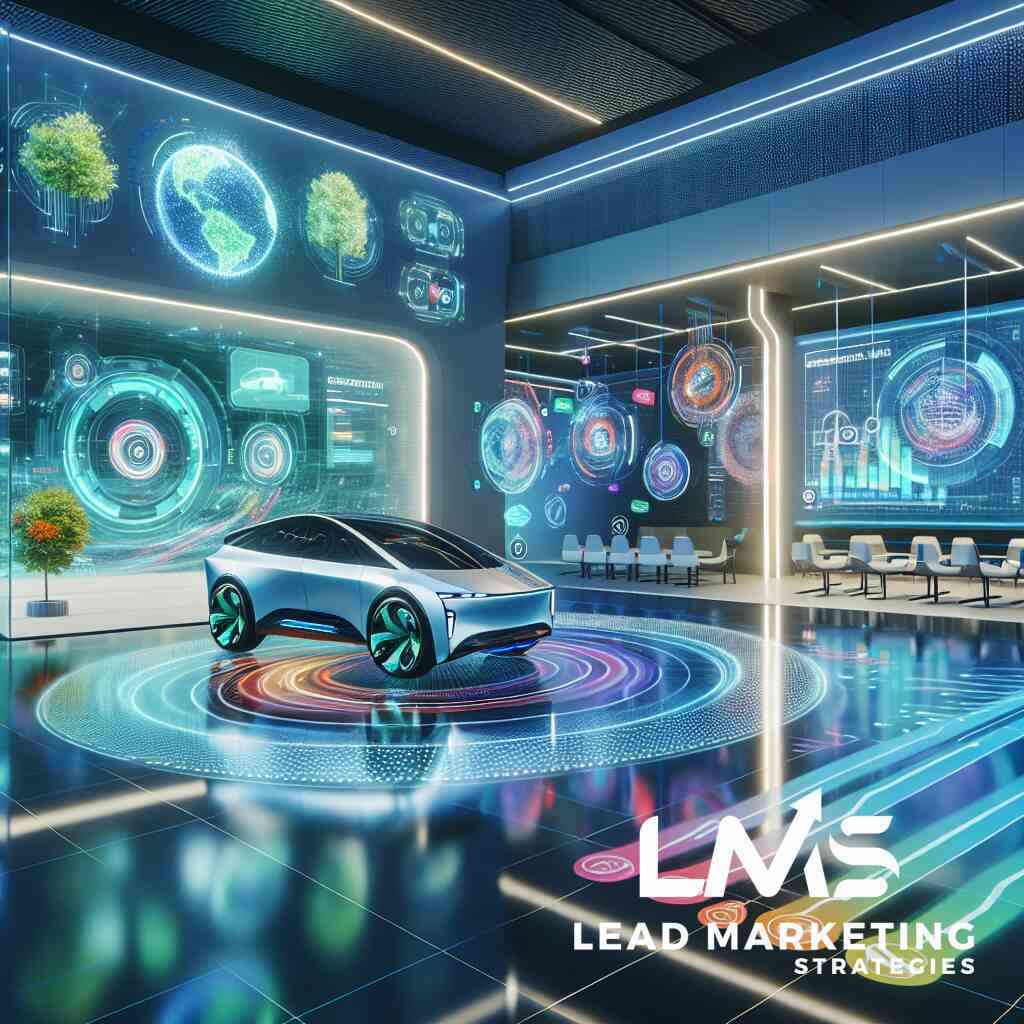
The Green Shift: Eco-Friendly Automotive Marketing Strategies
Exploring Sustainable Advertising for Electric Vehicles
As we advance into 2025, sustainable advertising for electric vehicles is no longer just a trend; it’s a necessity. Automotive companies are increasingly focusing on eco-friendly strategies to resonate with a growing base of environmentally conscious consumers. These strategies involve promoting the environmental benefits of electric vehicles, such as zero emissions and reduced carbon footprint. By engaging in sustainable advertising for electric vehicles, businesses not only help in combating climate change but also gain the trust of a demographic eager to make responsible purchasing decisions.
This shift towards sustainability is amplified by innovative campaigns that leverage green technologies to create memorable brand messages. Companies are employing cutting-edge digital platforms to disseminate these narratives, ensuring that their outreach is both effective and far-reaching. For instance, virtual reality experiences that simulate the eco-benefits of electric cars offer a compelling way to engage potential buyers. For those looking to delve deeper into this subject, exploring sustainable advertising for electric vehicles provides insights into how marketers are steering the industry toward a greener future.
Engaging Eco-Conscious Consumers through Green Tech
Reaching eco-conscious consumers requires automotive brands to adopt green technologies that align with their environmental values. These consumers prioritize reducing environmental impact, and as such, look for brands that demonstrate a commitment to sustainability. Integrating advanced technologies into marketing campaigns can offer unique and immersive experiences that educate and engage audiences on the benefits of eco-friendly vehicles.
Technology-driven initiatives, such as AI-powered sustainability analytics and blockchain for transparency, enable companies to showcase their green credentials effectively. By providing clear, data-backed evidence of their eco-initiatives, businesses can cultivate trust and foster a loyal customer base. Moreover, augmented reality apps that let consumers see how green tech works in situ provide engaging and informative content that bridges the gap between curiosity and conversion.
Highlighting Hybrid Car Innovations in 2025
The year 2025 marks a significant milestone for hybrid car innovations, with the successful integration of traditional automotive engineering and modern electric design. Marketing strategies for these advanced vehicles focus heavily on showcasing technological breakthroughs like increased battery efficiency and innovative propulsion systems. Highlighting these advancements not only keeps the consumer informed but also piques the interest of technology enthusiasts looking to invest in hybrid solutions.
Hybrid car marketing must emphasize the balance they offer between sustainability and performance. Detailed content on hybrid efficiency, government incentives for hybrid purchases, and long-term cost savings resonates well with potential buyers. This approach is essential for capturing the market segment that values both environmental consciousness and driving enjoyment. By engaging with innovations in eco-friendly car marketing, automotive companies can position themselves at the forefront of the green movement, appealing to an audience eager for cutting-edge automotive technology.
The Human Touch in a Digital Landscape
The Power of User-Generated Content and Influencer Collaborations
In a rapidly digitizing automotive industry, user-generated content and influencer collaborations have emerged as powerful marketing tools. By tapping into real consumer experiences, brands can create authentic connections that resonate with potential buyers. User reviews and social media content generated by consumers provide credibility and foster trust, which traditional advertising often lacks. The impact of user-generated content in car marketing cannot be overstated, as it amplifies brand messages and engages audiences on a personal level.
Additionally, influencer collaborations provide a contemporary approach to automotive marketing, lending a human touch to digital campaigns. Influencers, with their vast followings, can introduce vehicles to niche markets, thus extending reach and visibility. Consider the Impact of Influencer Collaborations in Automotive Marketing for a comprehensive outlook on this strategy. Partnering with influencers allows brands to leverage their credibility and established relationships with audiences, which can significantly enhance brand perception and encourage consumer engagement. Embracing these modern marketing techniques enables auto businesses to stay relevant and competitive in the ever-evolving digital landscape.
Personalization in Car Sales: Crafting Customer-Centric Campaigns
Personalization remains a cornerstone of effective automotive marketing strategies going into 2025. Consumers increasingly expect brands to understand their preferences and provide tailored experiences. By leveraging data analytics and AI tools, automotive companies can craft personalized campaigns that align with individual customer needs, enhancing satisfaction and loyalty. Exploring key personalization in car sales marketing provides insights on how to create compelling, customer-driven campaigns that stand out in a crowded market.
Emphasizing personalization in your marketing approach not only improves conversion rates but also strengthens customer relationships. By analyzing customer data, automotive brands can recommend products based on previous purchases, tailor offers to suit individual budgets, and even suggest the most suitable car models for each customer. This bespoke approach positions brands as customer-centric leaders, ensuring they remain at the forefront of consumer minds. Personalization is no longer just a strategy; it’s an expectation that brands must meet to achieve success.
Connecting Through Data-Driven Marketing Decisions
Data-driven marketing decisions are set to revolutionize the automotive industry, offering marketers profound insights into customer behaviors and preferences. By employing data analytics, businesses can predict future buying trends, track consumer journeys, and devise strategic campaigns. This approach ensures that every marketing action taken is informed by concrete data, ultimately improving efficiency and efficacy. As part of broader automotive marketing strategy trends, data-driven decisions empower businesses to allocate resources wisely and target audiences with pinpoint accuracy.
Furthermore, data analytics facilitates a deeper understanding of market dynamics, allowing automotive brands to pivot strategies in response to real-time feedback. This agility is crucial in an industry characterized by rapid technological advancements and changing consumer expectations. By embedding data-driven insights into your marketing framework, you not only enhance customer engagement but also future-proof your business against unpredictable market shifts. Investing in robust data analytics capabilities is essential for automotive businesses aiming to navigate the complex marketing landscape effectively.
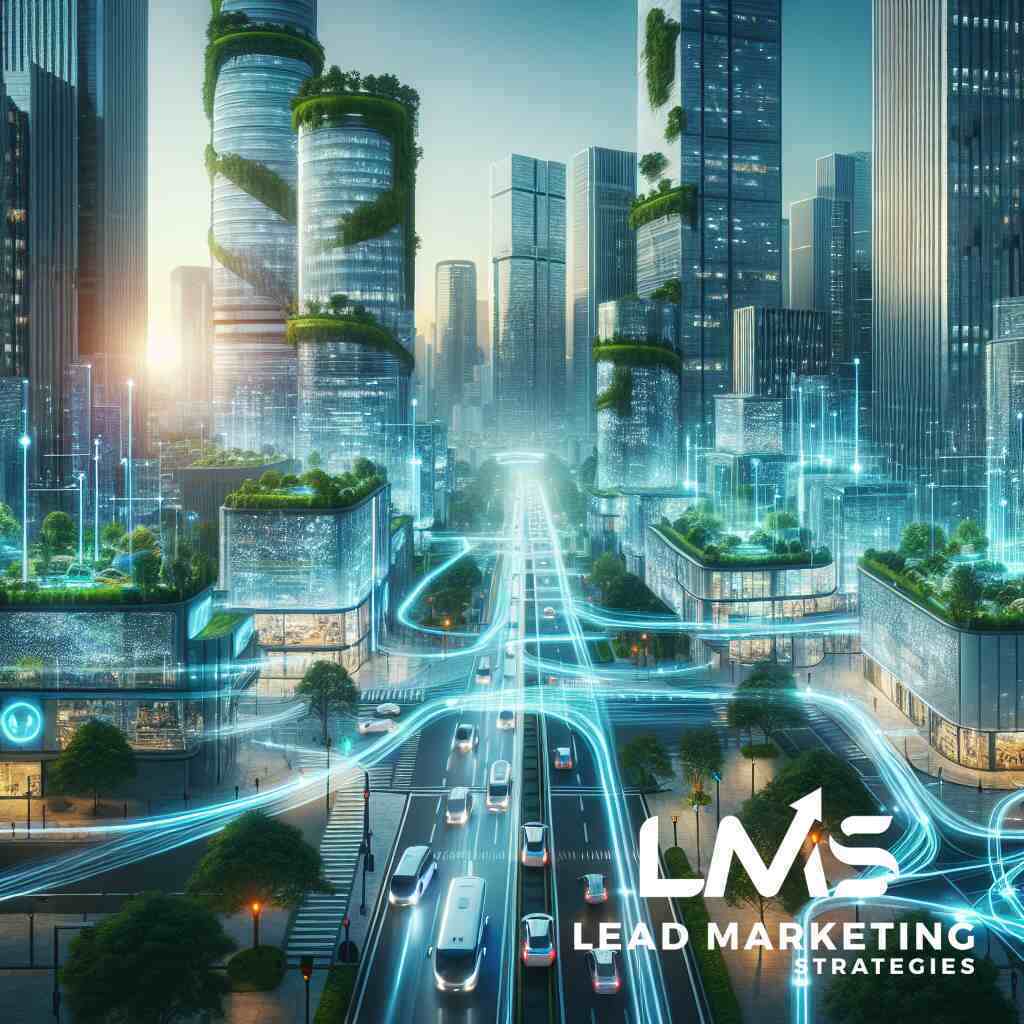
Conclusion: Navigating the Auto Marketing Landscape of Tomorrow
Embracing Change and Innovation
As the automotive industry evolves, embracing change and innovation becomes crucial for businesses striving to stay competitive. Auto Marketing in 2025 requires a willingness to adopt new technologies such as AI, machine learning, and predictive analytics. These tools not only enhance marketing strategies but also empower businesses to create personalized and engaging consumer experiences. The ability to adapt to these shifts ensures that automotive companies can effectively navigate the complexities of a digital landscape.
Moreover, the integration of cutting-edge technologies like augmented reality and virtual showrooms is essential. These innovations break geographical limitations and offer immersive experiences, transforming traditional car marketing practices. By embracing advancements in digital changes and their impact on marketing, businesses can stay ahead of the curve and cultivate robust customer relationships. As the landscape continues to shift, the adoption of innovative solutions is not just beneficial but necessary for sustained automotive marketing success.
Building a Future-Proof Marketing Strategy for Automotive Success
To secure a future in the automotive market, businesses need to develop a future-proof marketing strategy. This involves a strategic focus on data-driven decision-making, which ensures targeted and efficient marketing campaigns. By understanding consumer behaviors and preferences through data analytics, businesses can better allocate resources and maximize return on investment. This, in turn, supports sustainable growth and long-term success.
Furthermore, building a future-proof strategy involves capitalizing on auto industry marketing innovations that drive brand visibility and customer engagement. Leveraging platforms that support consumer interaction, such as social media and influencer partnerships, enhances authenticity and trust. Additionally, investing in a strong online presence through advanced SEO tactics ensures visibility in a competitive market. By keeping abreast of technological and consumer trends, automotive businesses will be well-positioned to overcome challenges and thrive in the dynamic marketing landscape.
Frequently Asked Questions
Question: How does AI in car marketing enhance auto shop marketing services in 2025?
Answer: AI in car marketing provides auto shop marketing services with unparalleled precision and efficiency. By leveraging artificial intelligence, automotive businesses can analyze customer data to deliver tailored marketing campaigns that anticipate consumer needs and preferences. AI-powered tools enable real-time adjustments to marketing strategies, ensuring content stays relevant and engaging. At Auto Shop Marketing Strategies, we integrate advanced AI technologies to craft campaigns that optimize engagement and conversion rates. This data-driven approach underscores our commitment to providing cutting-edge automotive SEO and digital advertising solutions to drive customer acquisition and retention.
Question: What role does predictive car marketing play in effective auto marketing for 2025?
Answer: Predictive car marketing is fundamental in shaping effective auto marketing strategies for 2025. By utilizing predictive analytics, businesses can anticipate market trends and consumer behaviors, allowing for more proactive and tailored marketing efforts. Auto Shop Marketing Strategies employs predictive car marketing tools that analyze vast datasets to understand potential customer interactions and sales patterns. By doing so, our auto service advertising and car service web design projects can be finely tuned to resonate with target audiences, leading to increased conversions and customer loyalty. Our expertise in predictive analytics empowers businesses to remain competitive in a rapidly evolving automotive market.
Question: How do automotive augmented reality marketing strategies enhance customer engagement?
Answer: Automotive augmented reality marketing offers immersive experiences that significantly enhance customer engagement. With AR, prospective buyers can interact with vehicles in a virtual space, allowing for detailed exploration of car features from the comfort of their own homes. This technology breaks traditional marketing barriers, making vehicle information more accessible and engaging. Auto Shop Marketing Strategies implements AR applications to provide innovative auto marketing personalization. By utilizing AR, we transform traditional ad campaigns into interactive experiences that not only capture attention but also build lasting connections with consumers, which is essential for boosting brand visibility and loyalty.
Question: In the blog post ‘What Does Effective Auto Marketing Mean in 2025’, seamless integration of emerging technologies is emphasized. How does Auto Shop Marketing Strategies facilitate this?
Answer: In the rapidly advancing landscape of 2025, seamless integration of emerging technologies is crucial to effective auto marketing. At Auto Shop Marketing Strategies, we facilitate this through our comprehensive digital transformation services. By employing cutting-edge tools such as AI, machine learning, and augmented reality, we ensure that our clients are at the forefront of automotive industry innovations. Our services, from automotive social media marketing to car repair PPC advertising, are designed with a future-proof mindset, implementing technologies that align with consumer and industry trends. This strategic integration enhances brand competitiveness and optimizes marketing efficiency.
Question: What digital car sales revolution strategies do Auto Shop Marketing Strategies offer to stay ahead in 2025’s competitive auto market?
Answer: Auto Shop Marketing Strategies offers a suite of digital car sales revolution strategies to keep our clients ahead in the competitive 2025 auto market. By focusing on mobile-first automotive strategy, voice search optimization, and advanced vehicle branding, we ensure our clients’ digital presence is robust and dynamic. We leverage next-gen SEO tactics and connected car technology ads to enhance online visibility and attract the right audience. Our commitment to innovative and sustainable marketing solutions, including hybrid car marketing and eco-friendly advertising, positions our clients as leaders in both the digital and eco-conscious spheres of the automotive industry.
